Evelyn Valtin: “It All Starts with Caring”
Get to know a person for whom creating social impact starts with personal values and a balanced way of life. Evelyn Valtin, Project Manager for social innovation activities under the Swiss-Estonian Cooperation Programme measure “Supporting Social Inclusion”, shares her thoughts and experiences in a Q\&A format – from animal welfare and sustainable living to international projects.
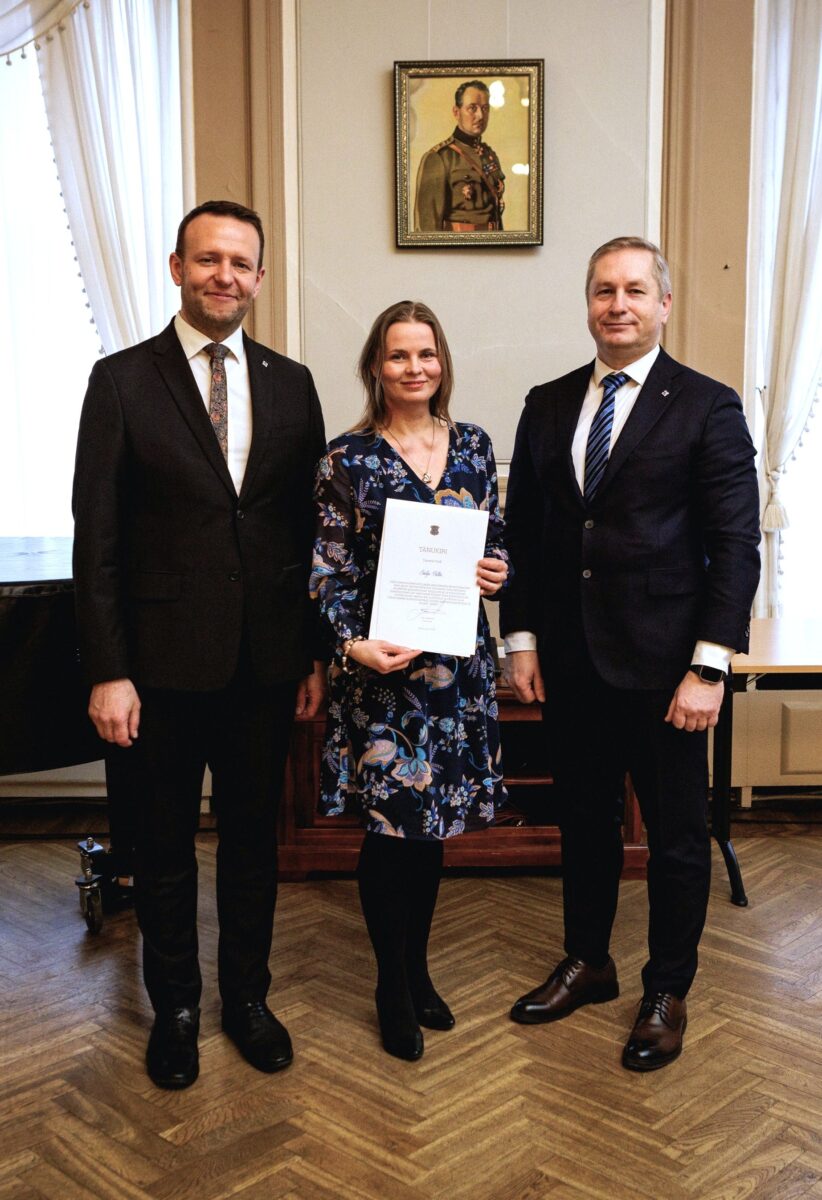
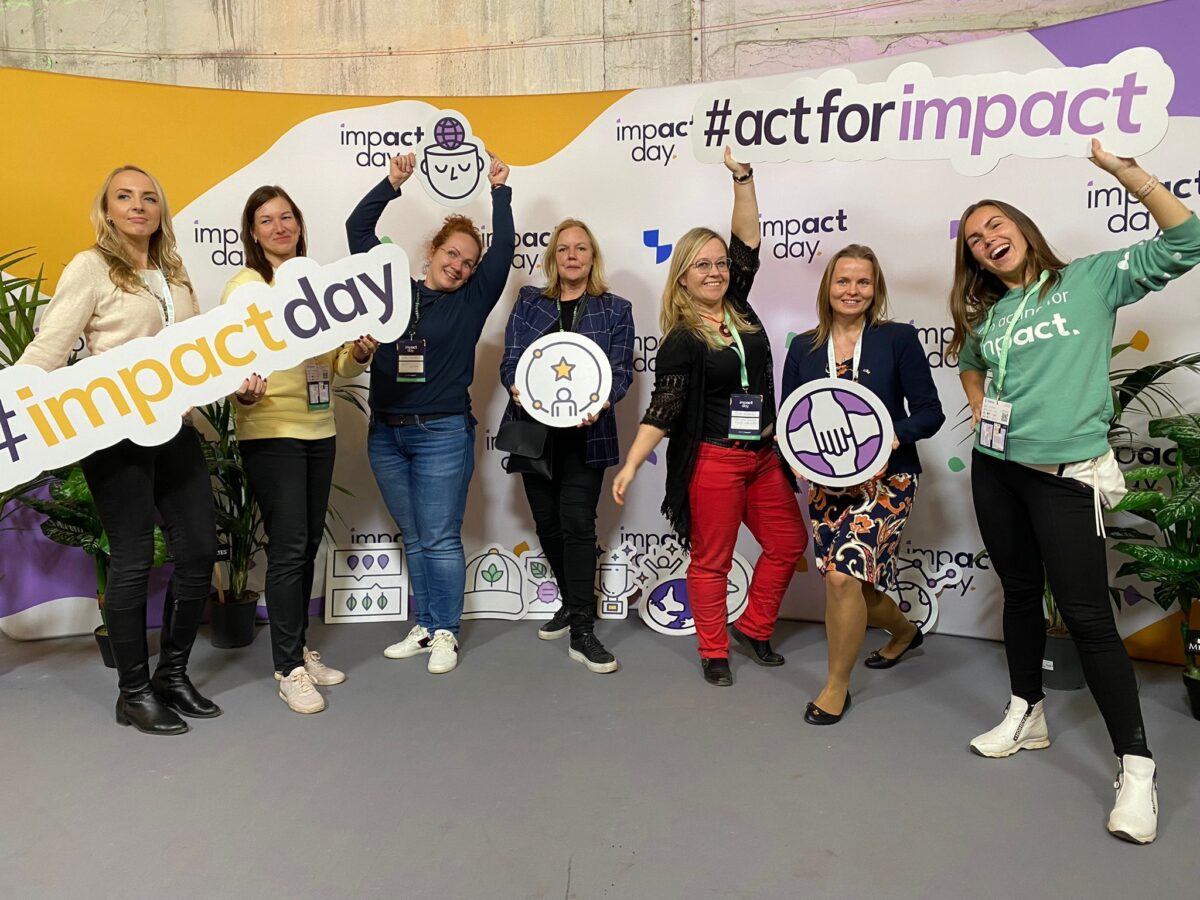
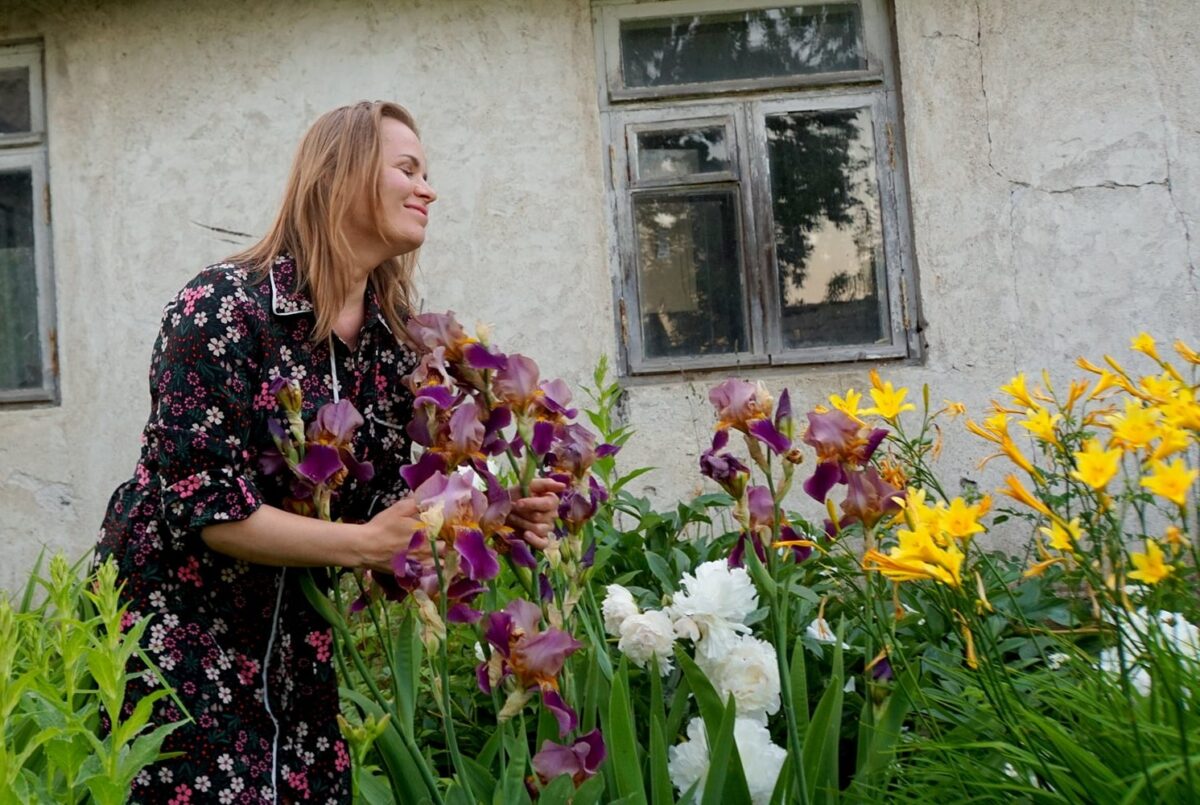
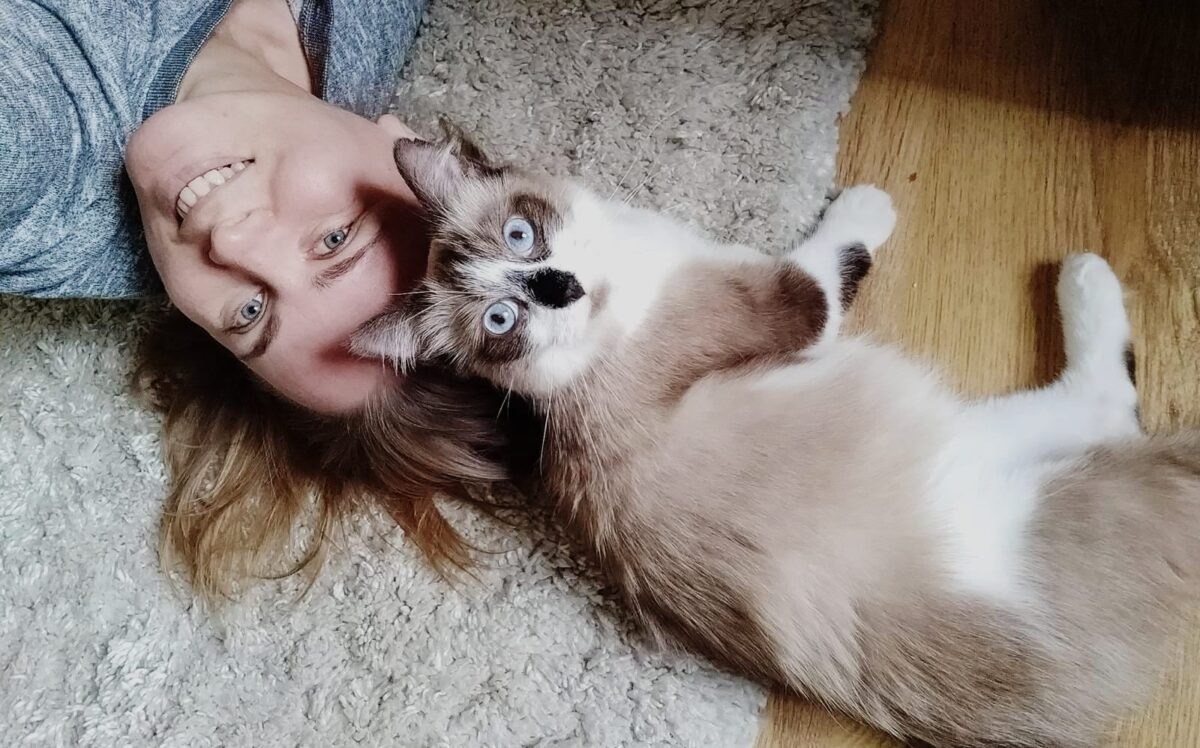
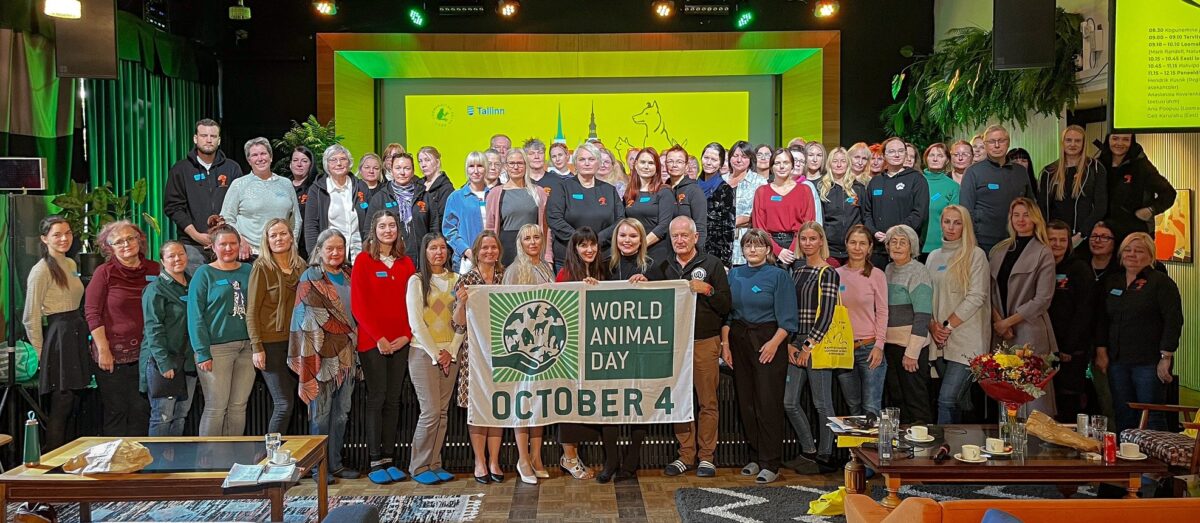
How would you describe yourself most accurately?
I am active, with a positive and optimistic attitude to life, oriented towards solutions and cooperation. I’m interested in various life topics. I consider it important to contribute my time to activities that are in line with my values and also by doing what I feel is creating positive impact in the society. For me, physical, mental and spiritual well-being and a balanced lifestyle is important, where in addition to work and volunteering, I have enough time for rest, fun and relaxing activities. I value empathy, the appreciation and interconnectedness of all living beings, including our planet as a whole.
What task have you started to fulfill at NFCS and what question can be addressed to you (in the sense that not your colleagues but rather from outside the organisation – we all communicate, after all)?
I started working at NFSC on January 1, 2017 as the Estonian coordinator of the Europe for Citizens Programme’s Contact Point and as the coordinator of Estonian international cooperation call.
Since the spring of 2021, my main focus area at NFCS has been social innovation, including the launch of a social innovation competence centre together with a network. Also, finding additional funds for thematic activities by preparing one international project with several partners and another national project launched with several ministries, etc., for which I was recognized with a letter of appreciation at the ceremony dedicated to the 106th anniversary of the Republic of Estonia by the Ministry of the Interior in 2024.
Since the summer of 2024, I have been working at NFCS as the project manager of social innovation activities of the Swiss-Estonian cooperation programme of the Social Innovation Competence Centre, keeping the focus on organising and implementing project activities, contributing to international cooperation, several working groups, supporting the network and the sustainability of the field.
In the meantime, I have also contributed to the coordination and support of CSO consultants of the county development centers’ and the organising activities under the Estonian Diversity Charter and Respecting Differences label.
What is your previous contact with civil society, have you been a member of an CSO or community yourself, etc.?
My first contacts and voluntary assistance date back to the 1990s, when I helped homeless cats and dogs with my family, some of whom also found temporary homes and later found new homes.
I have been actively involved in civil society since 2004, when I joined the international student organization AIESEC, where I volunteered for 4 years, including leading the all-Estonian student awareness-raising study series “Klapid eest!” (meaning open your eyes) and also contributing to the team supporting the organisation’s national board with IT developments.
Since 2006, I have been active in the Estonian Society for the Protection of Animals, which I led for seven years from 2007 on the board and as CEO from 2008-2013, contributing in many ways, from involving volunteers, organising events, offering foster home to animals and häving meetings with Estonian members of European Parliament in Brussels. I contributed to the ban on fur farms and the use of wild animals in circuses in Estonia. I still contribute as a volunteer in the organisation, and for the last six years, I have been organising and moderating an international animal welfare conference in Estonia with my team. I’m giving lectures at general education schools on animal protection, and advising on coping with the grief of the death of a pet. In addition to the Estonian Society for the Protection of Animals, I am also a member of the Estonian Green Movement and the Estonian Vegan Society and have also contributed to the activities of these organisations. In the meantime, I also contribute to other activities, for example, I am currently a mentor in The Integration Foundation’s Language Friend Program and this year’s Teeme ära! I am a dream leader during the cleaning campaign, doing some dream collection circles.
What do you do in your free time?
Being in nature is important to me, and in my free time I go out in nature or, depending on the season, do gardening. I like to experience nature and all its living beings, admire it and be amazed by how diverse and valuable it is. I have been photographing nature for a couple of decades, so a camera or mobile phone is often my good companion.
For almost a decade, I have dedicated a part of my free time to do research on my family and heritage. It has been an exciting journey, going through old church books and other archival documents, visiting ancestral homes and trails, and listening to and recording stories about life from my grandmother, relatives and other people. I feel like it has given me a greater sense of connection, peace of mind, well-being and understanding. There have been many awesome adventures and meetings on this journey, and there are still discoveries to be made.
Good and close relationships are important to me, so I dedicate some of my free time to my son, family and friends, both with fun activities and deeper conversations. I am fascinated by how people and the world work, how we develop and how the connections are being formed. I read, listen and watch media sources on psychology with excitement, support people close to me when necessary and possible, and provide peer support method and circles. Important books that I think should be on everyone’s reading list at least once are, for example, Lindsay C. Gibson’s “The Legacy of Emotionally Immature Parents”, Marshall B. Rosenberg’s “Nonviolent Communication”.
What do you wish for Estonian civil society, civil society, communities, what is your heartfelt desire?
My wish is that there would be more understanding, goodwill and consideration for each other in the entire society in general, and finding solutions by involving different parties. Bringing greater attention to the value that is in nature and people, in joint activities and presence. I wish that civil society, civil society organisation and communities would also have more cooperation, consideration of the connection between different topics and valuing everyone’s contribution by seeing the bigger picture. It is also important to take care of yourself and take time for yourself, your family and others, to maintain a good wellbeing and prevent burnout. I would like more financial resources to have on the field, as well as external involvement and noticing how important the so-called resource and competence are in it.
What is social innovation for you? Which initiative do you particularly like?
For me, social innovation is finding solutions to social problems by doing it together in dialogues with different parties and in an innovative way, as a result of which the problem is solved better than with the methods used so far.
World Cleanup Day is a very important socially innovative initiative for me. Every day, you can pick up trash yourself, whether on the street or in nature, and in this way do something for people, animals and other living beings. On World Cleanup Day, you can come together with millions of people around the world, join forces to create change and bring even greater attention to the problem of garbage and overconsumption and its solutions. Over the past 7 years, 114,000,000 people from 211 countries around the world have cleaned up as part of World Cleanup Day, which is about 1.4% of the planet’s population.
World Cleanup Day was first held in 2018, growing out of the nationwide Teeme Ära cleanup day. In 2024, World Cleanup Day was added to the UN’s calendar of international days and weeks, taking place every year on September 20. The first major garbage cleanup in Estonia took place in 2008, the following year a nationwide brainstorming session was organized, and since 2010, the Let’s Do It Day has been held on the first Saturday of May, bringing residents’ involvement in other ways and topics in addition to cleaning.